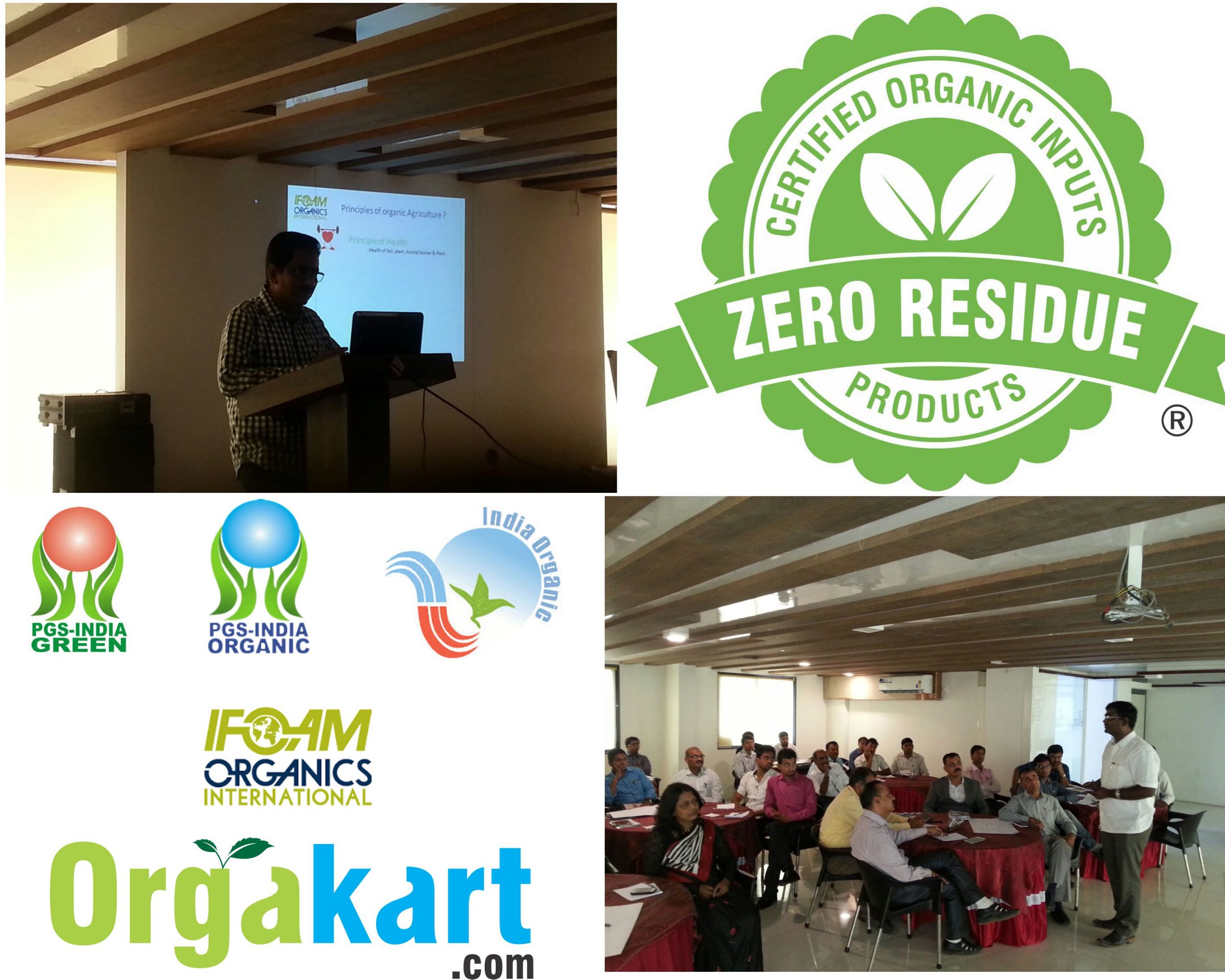
ORGAKART.com, Home of certified organic Inputs, organized a full day workshop on “Business opportunities in Organic” on 16th Aug 2015 in Nashik. It received an overwhelming response. Attendees were from diverse backgrounds, from doctorates to students, buyers to farmers, Doctors, IT professionals and Home-makers.
The Speaker, Orgakart ‘s Founder and Director Mr. Manohar Shete started the day with a warm welcome to everyone.
Mr. Manohar Shete is a well-known organic expert and committee member of ASTM International, United State of America and is also associated with IFOAM activities(IFOAM – International Federation of Organic Agriculture Movements). As an Executive Director of M&M Industries, he is continuously experimenting and developing new Organic inputs. He has certified and patented products to his credits.
With the first topic, ‘Organic, not now then when?’, the speaker emphasized the importance of organic for today and for next generations to come. It also highlighted the perfect timing of engaging into opportunities related to Organic. It is supported by the fact that organic industry has shown a growth rate of 23% as compared to average of 7-8% for other industries in India.
Mr. Shete explained the definition of organic as per IFOAM Standards. As per widely accepted definition, Organic Agriculture is a production system that sustains the health of soils, ecosystems and people. It relies on ecological processes, biodiversity and cycles adapted to local conditions, rather than the use of inputs with adverse effects. Organic Agriculture combines tradition, innovation and science to benefit the shared environment and promote fair relationships and a good quality of life for all involved.
The speaker Introduced Principles of Organic Agriculture,
Principle of Health i.e. Health of Soil, plant, Animal Human & Planet.
Principle of Ecology i.e. Emulating and Sustaining natural systems.
Principle of fairness Equity, i.e. Respect and Justice for all living things.
Principle of care for Next Generations to come
The workshop gave excellent information about how we know that the produce is organic? What should be our production process approach? What are key approaches in organic farming?
Common myths about organic produce were busted with the help of scientific evidence. Some of them included
Low production than conventional farming,
Should not use any input,
Not possible at large scale,
It’s just trend, not practice,
It’s non-profit, its only for NGO and rich farmers.
After a tasty lunch break he introduced various Organic business opportunities like:
Organic farming,Industrial organic, farming, Organic certification body ,Organic seeds production,
Organic consultant, Certified organic inputs, Organic supply chain ,Organic output exporter,
Organic outlet, Organic restaurant, Organic Food court,
Organic terrace gardening Training centre, Organic training institute
A briefing about Participatory Guarantee Systems (PGS) was provided.
PGS is Group of consumers, producers and experts.PGS is low cost, low paper work, more based on trust and is approved by government. This is an important and very effective concept for small land holders.
Various practical examples of how Organic businesses are widely spreading in world including India were shared by the speaker as well as the audience.
Workshop concluded with the participants giving reflections about the workshop.



